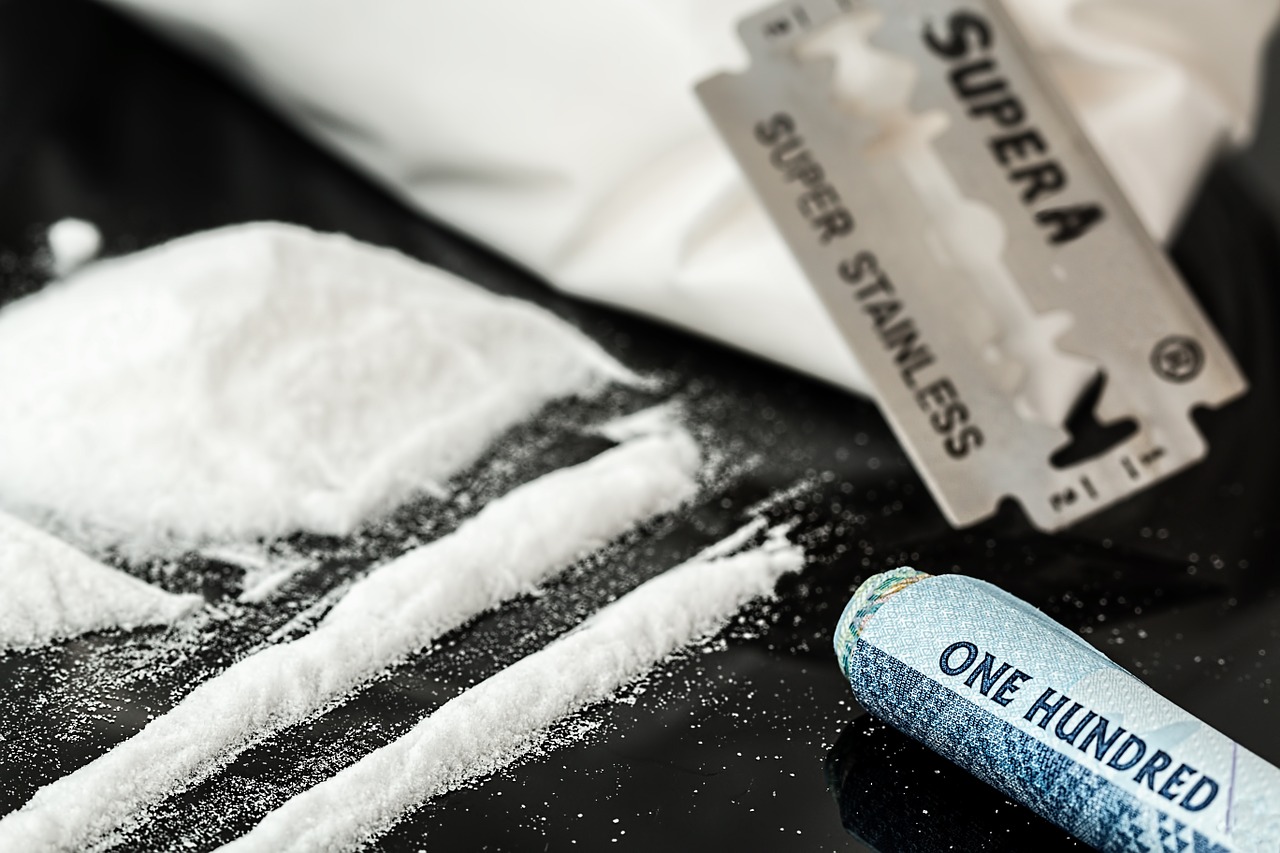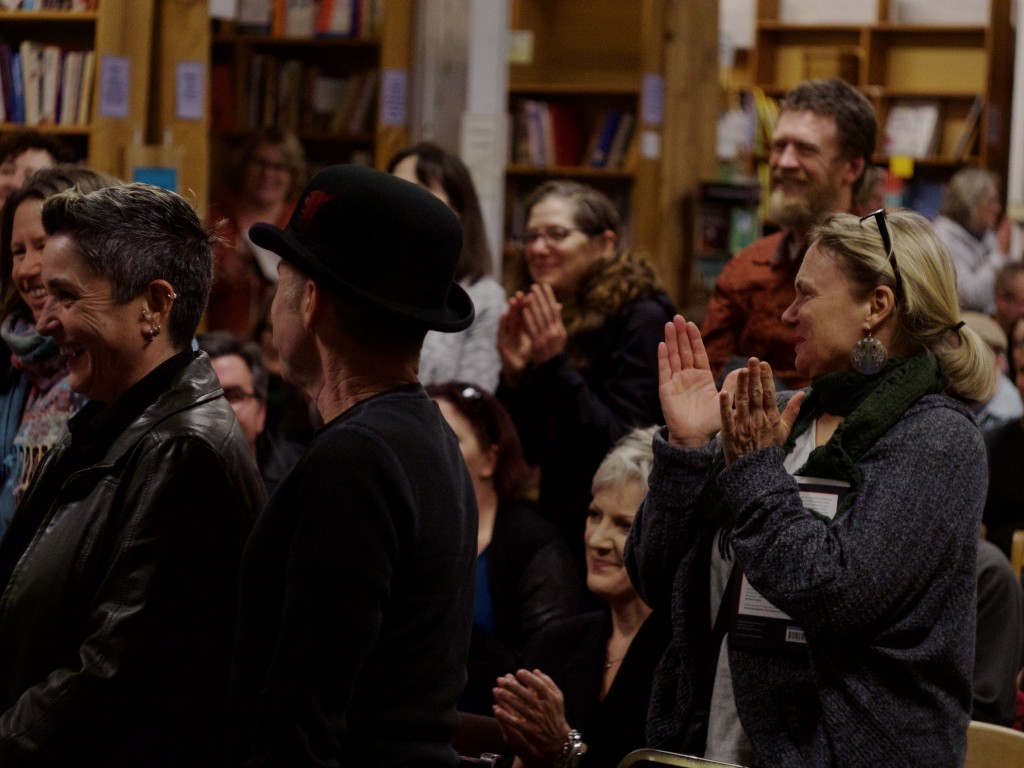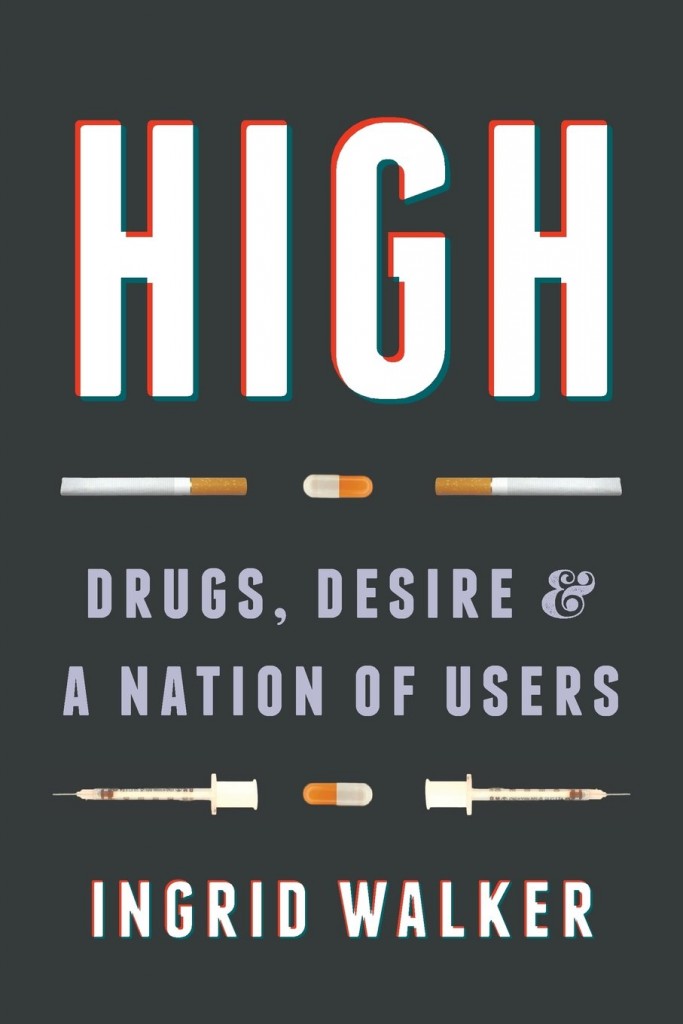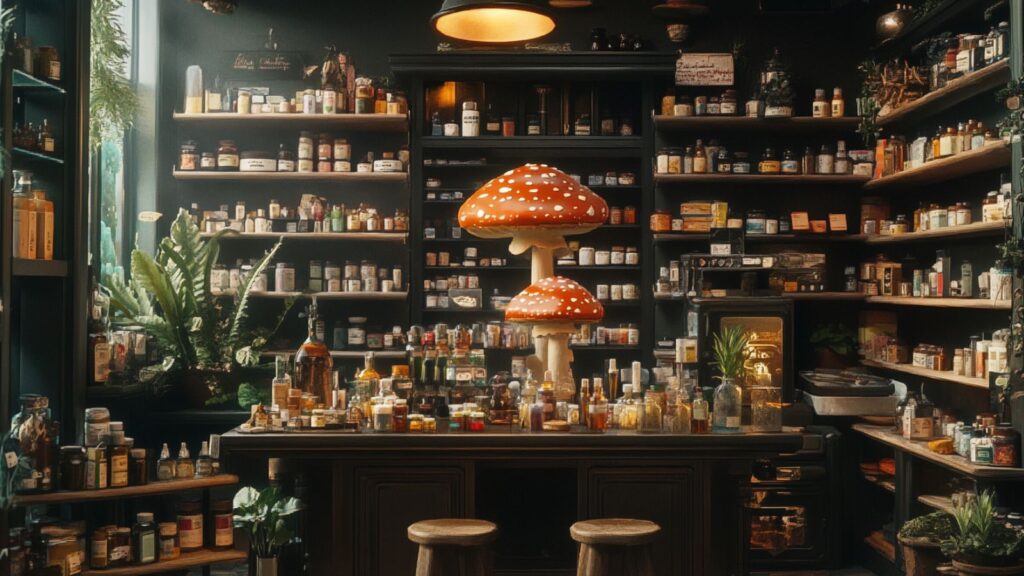The war on drugs has made us paranoid, and generations of drug advocates have had to adapt the conversation about drug use to a certain kind of academic, scientific and philosophical speak wreathed, not in direct admission of use, but rather a distant clinical mystique. Standing out from this traditionally safer approach is Dr. Ingrid Walker, a self-proclaimed multi-drug user.
She made a stir in her 2013 Ted Talk when she admitted that at times she indulged in amphetamine use and has upped the ante with her new book, High: Drugs, Desire & A Nation of Drug Users. In High she uses myriad testimonials from drug users of all types as a qualitative ballast to her painstaking collection of quantitative data gathered from the most up to date and thorough research sources to show what most self-reflective drug users already know; we do drugs because it feels good.
This concept, obvious to most, but systematically stigmatized by the war on drugs has created a manic situation in which we all secretly enjoy our highs while socially propagating the now well documented manufactured image of the junkie, stoner and burnout. Dr. Walker focuses not just on our enjoyment of drugs, but on our self medication, self soothing and our conditioning to trust a doctor’s advice with unquestioning faith. She reveals the mechanism that drives police department budgets to generate busts and incarcerate low level users to justify their department’s existence. High is not a long winded way of saying we do drugs to feel good, but rather an incisive and comprehensive look at the soul of American drug use in its joys and hypocrisy.
I had the pleasure of speaking with Dr. Walker in her office at the University of Washington to discuss the war on drugs, the benefits and pitfalls of our present national policy and how we might see a better approach to drugs, moving forward.
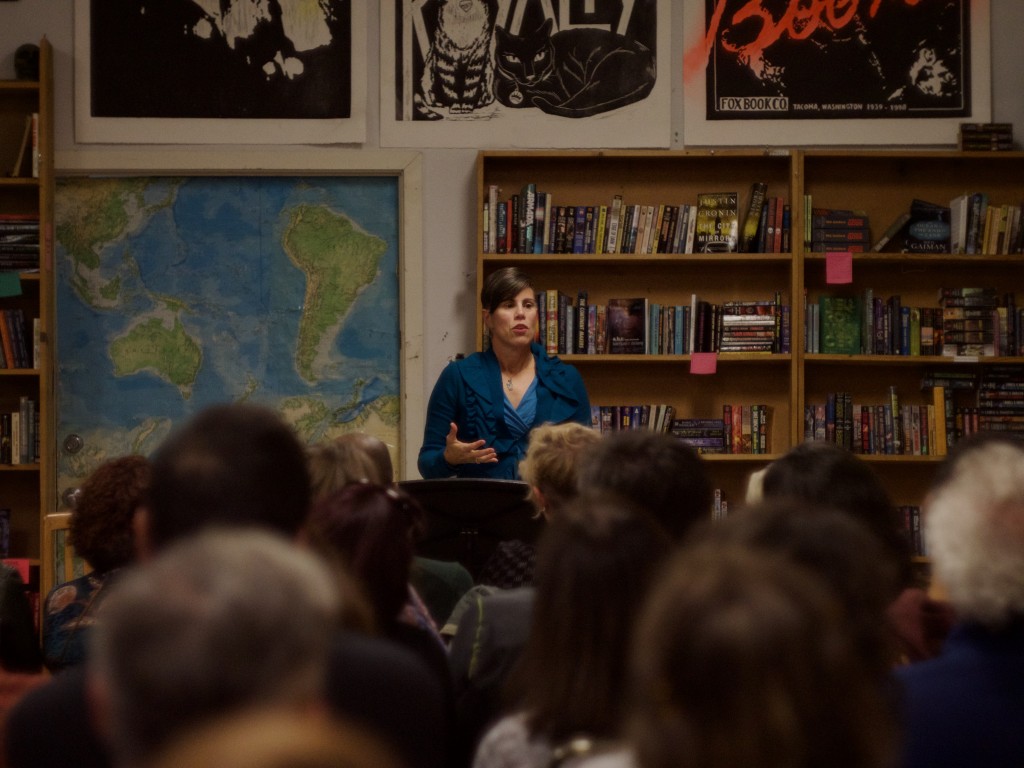
Can you tell me about what got you interested in the subject of getting high?
I grew up in various cultural contexts in which getting high was normalized. Not in a “get wasted” way, but mostly as a part of a regular, everyday lifestyle. From an early age, I knew that the media representation of drug users was a small slice of the reality. I also know people whose lives were devastated by drug war policies.
What pushed me to finally write this book, though, was two things: the George W Bush administration’s broad linkage of the drug war to terrorism and the dominance of drinking culture in the US. The tagline was “If you use drugs, you support terrorism.” This was 4 months after 9-11. It was an obscene media campaign. Also, I am a minimal to non-drinker, so I spend a lot of time out with people, watching them drink. I witness their deep enjoyment of wines and spirits—and often their overuse of these substances— even as I hear them say things about illicit drugs and users that are flat-out wrong. As a drug user and as a drug researcher, I share information that surprises them.
So, I wonder: what if illicit drugs were as familiar and regulated as wine, beer, and liquor? What if you could say you enjoyed those drugs? What would it take to begin to undo the very effective education we’ve had in the U.S. to think that all users are addicts? What if we could imagine a more informed, broad spectrum of drug use? We celebrate and promote certain intoxications—why not all of them? There isn’t a scientific, medical, or social reason not to.
What caused the war on drugs? Was it for the health and safety of the American public?
I love the idea that the war on drugs is a public health effort. From the US drug schedule to various laws related to it, none of it is based in science or medicine. Ironically, the war on drugs was an outgrowth of alcohol prohibition zealotry once that law was repealed. Henry Anslinger’s Bureau of Narcotics had free reign to demonize and prey on certain populations, which continues today. But the drug war also has a broader context that folds in all the worst of US culture: moralism, xenophobia, capitalism, and a desire to police people’s behaviors. In High, I write about the escalation of the drug war as dangerous political theater from Reagan to Bush W. but there are such excellent books that cover the complex factors that caused the war on drugs that I’ll just suggest that readers check out: The New Jim Crow by Michelle Alexander; The Politics and Morality of Deviance by Ben-Yehuda and Nachmann; Forces of Habit, David Courtwright; Crack in America by Craig Reinarman. But one of the best quick and dirty introductions to the crazy that is the history of the US drug war is an introductory chapter in a textbook, The American Drug Scene, Inciardi and McElrath. The chapter, “The Evolution of Drug Taking & Drug Seeking in America,” lays out the entire history of what we loved to use and get high on and then the policies that outlawed that drug, followed by the next drug that was going to save us from the first one. It’s class US cultural behavior involving the drug industry, medical and psychological practices, and user interest that led to the ratcheting up of criminalization.
Why did you make such an effort in your book to share personal stories from everyday users?
Users know that the hype of the drug war is total bullshit, right? We laugh about it. But I started to realize that even colleagues of mine who maybe had used cannabis but nothing else really believed it. Media and popular culture are effective teachers. Decades of cheesy and terrifying PSAs and the replication of those characterizations in film and television has been incredibly effective. It’s why I begin the book with my own use and with a chapter called “Picture a Drug User.” Turns out, our learned pictures are really, really wrong. So giving users a platform, a place to tell their varies stories, was a main goal. I originally had two books – one focused on user narratives and art and an academic book. When I realized I wanted US audiences outside of academia to read this, I knew I had to combine the two. Cultural change comes from one-on-one experiences. When Americans realized they knew trans people and children, for example, suddenly transgender social justice was a public conversation. Lifting the silencing effects of criminalization is, for me, the main focus of this book. If more users tell their stories, more Americans will realize how damaging drug prohibition is. And if the opiate overdose crisis doesn’t ring that bell, I don’t know what will. Black markets are a danger to public health. Period.
Somebody’s mom is worried that legalized marijuana is going to turn their child into a heroin addict as a gateway drug. What does the data tell us about this kind of thing?
I’m a mom. I just felt like I should lead with that. The notion of gateway drugs has been debunked in studies of all kinds. Most importantly, though, any practice is culturally contextualized. There’s nothing that is a straight up road to addiction. Many users who suffer drug abuse or substance use disorder have reasons that are social/environmental as much as anything. Similarly, those who resolve substance use disorder often have compelling reasons to do so (jobs, resources, family, etc.) We hear about the extreme cases of addiction. That is the totality of what is represented in the media. So, marijuana is not a gateway drug any more than running on the weekends will lead to running 100 mile ultramarathons. Sure, some runners start as weekend warriors and end up running across Patagonia. They are in the minority. It’s worth noting, though, that many people who habitually use any psychoactive substance are managing their experience. A lot of people who use marijuana to a great extent are using it for psychological or physical pain. Sometimes we see that as “addiction.” Do we see people who take an antianxiety med every day as addicted?
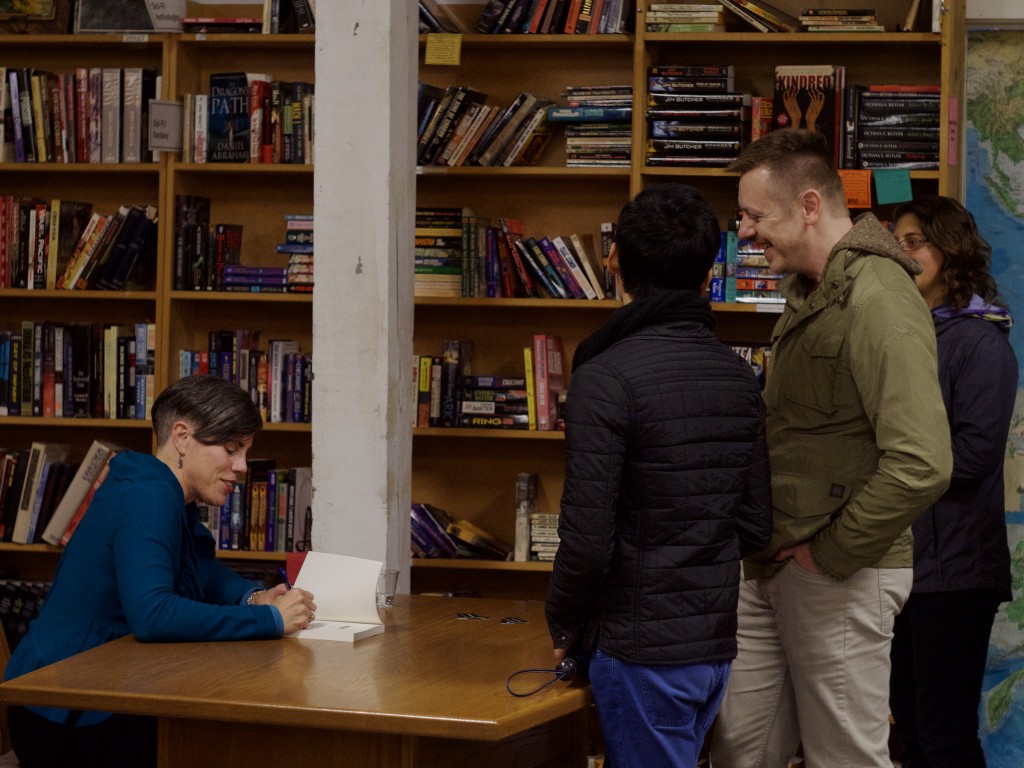
Many psychedelic advocates draw a sharp line of distinction between psychedelics and “hard drugs” like meth and heroin, claiming consciousness expansion as a noble venture, while harder drugs for pleasure are looked down on. How does this affect the conversation?
First, I think that’s really insulting: my high is better than yours. I’ve used all of those drugs and can say that I gravitate toward hallucinogens more than the others for my own reasons. But I also know that people use drugs for different reasons. Sometimes we want to feel intoxicated at a rave. Sometimes we want to be introspective in the woods. And sometimes we just want to get loaded and forget. People also use alcohol, tobacco, caffeine, and other drugs in these ways.
Secondly, I think it’s an artifact of the drug war that we make these distinctions. It’s not based in science or in any kind of data. In fact, while I celebrate the legalization of cannabis in the US, I am worried that it has been a capitalistic venture—not a venture based in understanding of the drug itself or in any sense of public health. This is demonstrated by the incredibly high THC content in much of the legalized product—it’s like anything else we commodify in this country. We want more. I’d like to see longitudinal studies about drug use that situates the use in various contexts, understands the intersections of that drug with economic class, ethnicity, gender, and region for those users. If we’re going to make distinctions about drugs, we might want to base those distinctions in research on how users employ them and what their effects are. There’s a great study done by the Global Drug Survey called the Net Pleasure Index. It shows that people rank hallucinogens at the top of the cost/benefit analysis calculus of use. But they do that because the downsides of using regularly are less with hallucinogens. So, maybe I’m not going to trip every day. In my case, I won’t use meth everyday, either. But if I did, both would have a strong impact on the downside.
One thing that stands out in your work is your claim that it’s ok for us to do drugs for pleasure. What’s your justification for this?
More than 90% of the users of all drugs use without any abuse problems. So, don’t ask me. Ask millions of happy, drug-using Americans. This is true for every drug but…wait for it…nicotine. That one’s not so fun to try to stop using. But booze, heroin, meth, Oxy, ecstasy, etc. etc. are all used primarily for pleasure by people who can use and walk away. And they’re mostly using for some kind of pleasure. If we use substances in self-regulating ways, It seems to be ok to do drugs for pleasure.
It’s got to be a little unnerving being a professor at a well respected University and being so outspoken not just about drug advocacy, but also your personal use. Does this ever make you nervous?
Sure. I’ve worked hard for my position and my reputation. I also know that there are thousands of people who know me as a drug user. I figure if I can’t be open about this, given the many social privileges I enjoy, then who else can? To be clear, I let the university know I was going to do this book. It’s based in extensive research across 5 fields. I didn’t make this stuff up. My use practices are simply part of a context in which it’s important to speak truth to misinformation and power. The drug war has succeeded—and medicalization goes unchecked—because we are cowed. I’m not willing to let the misinformation have free reign in the social dialogue anymore. I will admit that when I announced my drug use in my TED talk, I held my breath for about a year afterwards, waiting for blowback. There wasn’t any. The book was underway, and it clarified for me how ready we are to have a real conversation about drug use, informed by strong research and many users’ experiences. There are other projects that privilege individual user narratives. I think it’s going to be a social justice movement.
What would you say most people who are anti-drug need to know about drugs and their place in American life? What might surprise them?
For me, the biggest surprise was the magnitude of the data points. I knew most users weren’t people with addiction, but even I was blown away that way over 90% of users of all drugs do not suffer drug addiction. If that’s true, what else do we have wrong? (A lot, it turns out.) We have greatly overemphasized addiction as an outcome of using drugs for a lot of reasons. And there are a lot of other factors that we have wrong. We need research that looks into self-regulating drug use to better understand it and users. The other thing that people who are anti-drug should know is that we’re all drug users. We use psychoactive drugs all the time, from antidepressants to caffeine. Alcohol is a lot like other drugs in important ways. The difference is that we’ve legalized it and we have used harm reduction principles to learn how to use it responsibly, for the most part. Some people abuse it. Some episodically overdo it. Most people use it regularly throughout the afternoon and evening as part of a balanced life.
How do we approach drugs with a higher danger of addiction in this conversation. Are you afraid people will read your book and decide to shoot up?
I’m afraid humans will do all kinds of things that are risky. But my experience of drugs and drug user networks is that most of us want to introduce each other to new experiences in safe ways. I guess I will rely on people to have common sense and to help each other stay safe. Shooting up isn’t inherently bad, though it comes with a lot of risks. The drugs themselves are the biggest wildcard right now. The reason we’re seeing so many OD deaths from opiates is adulterated drugs or drugs that are being passed off as one thing (heroin) but are another (fentanyl, for ex.). Combining drugs is as big a problem. And there are a LOT of OD deaths that are not opiate related. They might be people who are combining benzodiazepines and alcohol, for example. If we could have more informed conversations about drugs, balancing harms and risks with pleasure, as we have with alcohol, we’d be in a better place.
What can other countries approach to drug use teach us in the United States?
Many countries (25-30) have regularized successful harm reduction practices such as medically supervised safe drug consumption sites. Some have decriminalized drugs, minimizing black markets. Or they have research centers that look at drug “use” as well as abuse. The Global Commission on Drug Policy, a well-informed, international body, has commissioned research in key areas. Their very first report in 2011 utterly shamed the US for exporting the drug war and amplifying criminalization which has, in turn, amplified black markets. We think of ourselves as an evolved, developed country, but the US is way behind international best practices.
Advocates have used the argument that drugs can be therapeutic, or necessary for health, but why has no one argued from the perspective of them just feeling good?
Good question. I have! Actually, many researchers in the UK, Australia, and Canada have, as well as some of us here in the US. Pleasure is clearly why people use, so it’s critical to researching and understanding drug use. The reason legalization advocates have pushed in the therapeutic realm is that it’s more likely to get a foothold there due to our medicalized culture. It worked for cannabis. And it will work for hallucinogens. There are FDA Phase 3 studies going on right now with psilocybin and MDMA for psychedelic therapies in treating PTSD, depression, etc. But that raises a question: why would we wait for people to be hurt before we encourage them to have pleasurable experiences? The logic of therapeutics comes from many places, both the history of synthesized psychedelics (psychology) and treating the mind/body as a place of medical oversight. But, of course, many people used psychedelics for entheogenic purposes for centuries before science discovered them. So our view in the contemporary US is very limited. Many drugs we now consider safe for daily use (caffeine, for example) were once outlawed.
Does capitalism have a role to play in the way the United States treats drugs and drug users?
That’s a great question and is probably an entire book unto itself. Short answer: yes. Think about the ways that most states, who have domain over alcohol laws, have made it available nearly everywhere. If you’ve worked in the food industry, you know that this is where the house makes profits. If we look at how the legalization of recreational marijuana has evolved, it’s almost terrifying to see the industrial level of production of high-potency products. It’s a huge industry already.
That said, we’re a capitalist system. And I, for one, would like access to regulated, reliable drugs. I’d like to know that what I’m using has some control for safety and quality in dosage and content. I’d like to be able to get it easily. So, it makes sense that the market will drive legalization. The trick is how states put in place safeguards and regulations—something hard to do after the fact.
Are pharmaceuticals safe to use and do they count as drug use if a doctor prescribes them?
They can be safe if used as indicated by a physician, although we’ve seen that even that got out of hand with the overprescription of opiates. We think of drugs and many other kinds of things in very oversimplified ways. Drugs aren’t good or bad. They’re not safe or risky. They are agents that have effects on our bodies and brains. We know very little about the drugs we are prescribed by physicians and that’s a problem. The pharmaceutical industry has excelled at dodging regulations and testing of drug effects. Marcia Angell, physician and former editor of the New England Journal of Medicine, wrote a great expose on big pharma called The Truth About Drug Companies. She and other scholars cite endless evidence of the ways in which big pharma has shaped medical practice through the AMA and APA. It can be hard to think of pharmaceutical drugs as agents unto themselves because, like everything else, we use them in cultural contexts of authorization and access that lead us to believe they are benign.
How might you define addiction and when would you recommend someone seek help for their potential drug overuse?
The newest DSM V (diagnostic tool for psychologists) has a longer set of indicating factors that are polythetic, a cluster of certain number of these factors may indicate drug abuse disorder or what we think of as addiction. So I’d start there, though looking anything up on the internet can be misinforming. Addiction treatment is an industry. It’s important to know that. It’s a big business and, overall, it has a low success rate. If I feared I was unable to stop using a drug, I would first go to a psychologist to talk about it and have some feedback about my suspicion about myself and I would ask for resources. Some programs are better than others, some fit people’s needs better than others. Cognitive behavioral therapy works for some people. Something more intense, like aversion therapy, is more effective for other people.
Does drug use have philosophical value? Are there any examples of drug using philosophers who’ve used the perspectives they have gained to some kind of constructive end?
I feel like you should answer this one. Drugs are the playground of poets and philosophers, from laudanum to cocaine and psychedelics. Didn’t William Blake write that the road to excess leads to the palace of wisdom? Many philosophers have explored and gone down the rabbit hole of substance use. Some of them reflect anti-drug thinking of their times. Aldous Huxley’s Doors of Perception is a favorite. William James’s writing about pluralistic universes and co-consciousness is intriguing. Frederick Nietzsche, Henri Bergson, Walter Benjamin, Michel Foucault, and many others used the phenomenology of getting high to experience a kind of alterity that I argue is key to understanding the self. Marcus Boon’s book, The Road of Excess, is a beautifully written and fun read on this whole question.
What has your own drug use taught you?
It’s taught me to let go. Of many things, but mostly of fear. I like hallucinogens best and, immediately, on my first trip, I was confronted with my fears. And the great thing about tripping is that you learn, you feel, that these are experiences that are constructed. You can dissipate them. So tripping has led me to have a stronger mind and sense of self. Everytime I return to that space, I find that I see those distant constructs and smile. I know they are not real. And I’m willing to explore anything within myself, now. That is a gift. Also, and this is for those moms / parents who are worried: drug use taught me who I am. I learned what too much was. I learned what accountability and safety are. I learned responsibility. If most users are not the ones we see in the movies, maybe I’m not alone in that experience.
How can people get your book?
If you’re in the PNW, at your local independent bookstore! Or, at Amazon.
***
